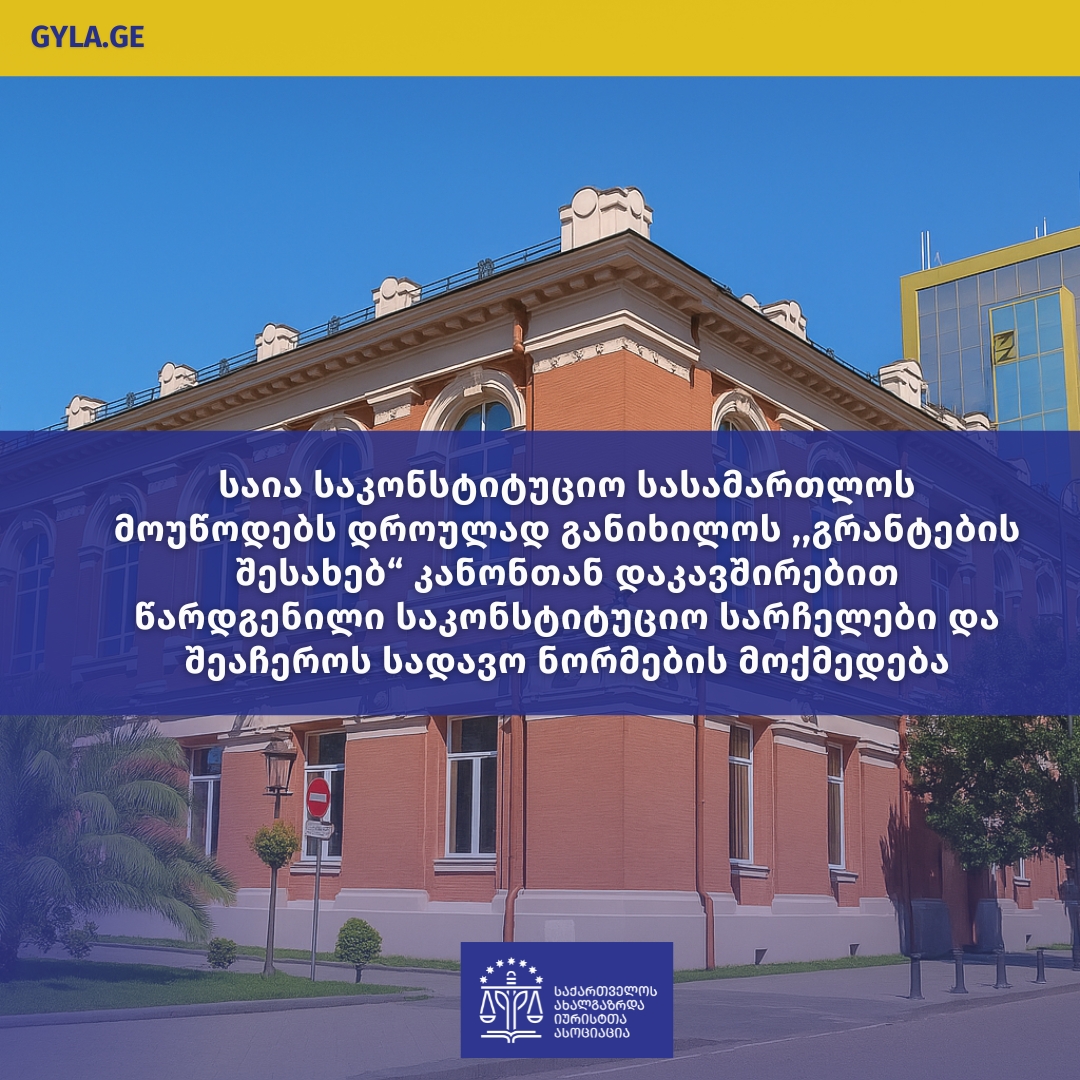NEWS

The Georgian Young Lawyers’ Association (GYLA) has filed another lawsuit to the Constitutional Court regarding the “Law on Grants.” GYLA is challenging Article 61 of the “Law on Grants,” based on which the Anti-Corruption Bureau launched a monitoring process against non-governmental organizations, including GYLA, in September of this year. The monitoring process was initiated on a large scale and, to date, it is conducted in relation to more than 60 organizations.
The disputed norm of the “Law on Grants” authorizes the Anti-Corruption Bureau broad powers, with the court’s approval, to request from non-governmental organizations, banks, or any state institution data containing special category and other personal data, as well as any confidential information, except for state secrets. In addition, the Anti-Corruption Bureau set a three-day term for organizations to submit large volume of information. The “Law on Grants” does not establish any specific term within which a non-governmental organization is obliged to provide the information requested by the Bureau on the basis of a court order. This circumstance allows the Anti-Corruption Bureau to impose unreasonably short terms, creating additional barriers for organizations that are incompatible with the provisions of the constitution.
GYLA argues that the disputed norms are incompatible with the right to freedom of association protected under Article 22(1) of the Constitution of Georgia. Furthermore, the imposition of unreasonably short term violates the right to a fair hearing before an administrative body, protected under Article 18(1) of the Constitution.
It is noteworthy that this is GYLA’s second constitutional lawsuit regarding the “Law on Grants.” The first lawsuit was filed by GYLA on 18 August 2025, requesting the declaration of unconstitutionality of the provisions of the “Law on Grants” and the relevant ordinance of the government that prohibited the provision and receipt of grants without the government’s approval. The existing mechanism constitutes a serious interference with the freedom of association guaranteed by the Constitution and infringes on the autonomy of organizations to independently determine their objectives, tasks, and scope of activities.
Until making the final decision on the case, GYLA has also requested the Constitutional Court to suspend the operation of the disputed norms establishing the monitoring mechanisms.
GYLA urges the Constitutional Court to fulfill its functions and in a timely manner convene a preliminary hearing to suspend the operation of the challenged norms.
SHARE: